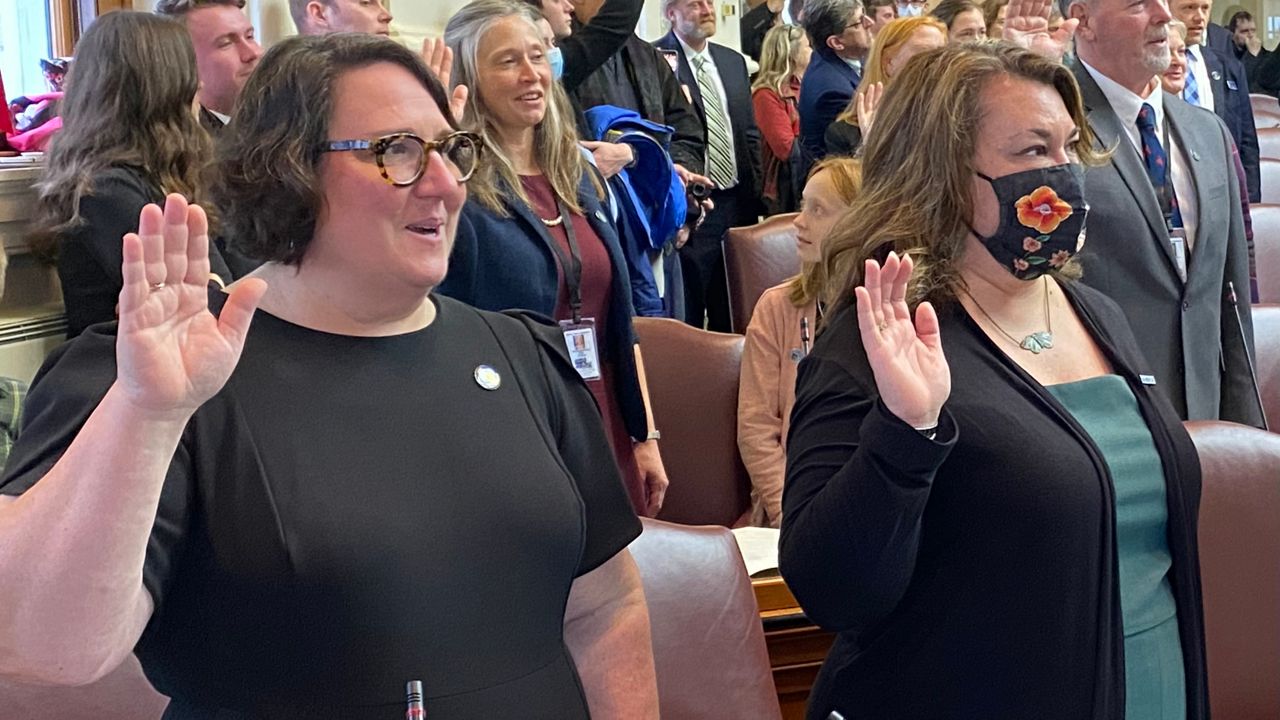Maine lawmakers will consider a bill next week to fix a popular senior citizen property tax break program that’s been described as unworkable and unfair by cities and towns.
House Majority Leader Maureen Terry (D-Gorham) is proposing to create a tiered senior resident homestead exemption to replace a law that seeks to stabilize property taxes for senior citizens.
Current law freezes home values for those 65 and older who have owned a home in Maine for at least 10 years if they apply to be part of the program.
Following an annual application with their city or town, their property taxes will be based on the value of the home at the time the value was locked in.
The program applies to all eligible seniors, regardless of income.
Terry, who was chairwoman of the Taxation Committee when the bill became law, said she and a majority of the other members of the committee voted against it because of concerns about the program’s cost.
But it passed the House and Senate, was funded by the Appropriations Committee and became law last May without Gov. Janet Mills’ signature.
Terry said the state has the funds to cover the cost now to the tune of $46 million for the first two years. But should there be an economic downtown, the state would likely reduce the amount of money it sends to cities and towns.
And because municipalities rely on property taxes to pay for essential services, the cost of the program will be shifted to other local taxpayers.
“Municipalities are always the ones that face the heaviest burden,” she said. “When we do programs like this, we have to be able to afford it in the long term.”
Terry worked with the Maine Municipal Association to come forward with a potential fix that will be considered by the Taxation Committee on Tuesday.
LD 1650 would provide an enhanced homestead exemption — a program that reduces taxes for those who have lived in a home for at least 12 months — for those 65 and older based on their income.
The income thresholds will vary based on region and will be different for those who live in southern Maine versus northern Maine, Terry said.
Municipal officials support the bill because it is based on the existing homestead exemption program that has been in place for years and it targets those most in need, Kate Dufour, MMA’s director of advocacy and communications, said via email.
Also, the bill relies more heavily on the state to help administer the program and reduces the cost, making it more likely that the state will be able to fully fund it.
In mid-March, the Taxation Committee considered four bills to make some changes to the existing program. Those who testified included municipal officials who have been inundated by applications to the program.
“Assessing programs throughout the state were overwhelmed with hundreds, and in some larger municipalities, well over a thousand applications,” Kerry Leichtman, assessor for Camden, Rockport and Rockland wrote to the committee.
Those applications required “hundreds of hours of manpower” to vet and process, he said.
“This well-intentioned but ill-conceived legislation has disrupted the operations of assessing departments throughout the state, it invites scams that require little ingenuity, it is available to the needy and well-to-do alike, and it is an affront to the fair and equitable sharing of the tax burden among the state’s citizens,” he wrote.
Taxation Committee Chairman Joe Perry (D-Bangor) said he’s heard from cities and towns frustrated by the program.
“This annual filing requirement is driving cities and towns crazy,” he said. “People are afraid they are going to miss it. They are driving the towns crazy. What has been put on them is not manageable by cities and towns.”
Terry said she hopes her bill will be a way to help lower property taxes for senior citizens who need it most, while also offering a workable solution for cities and towns.
She too has heard from municipal officials.
“They are scared,” she said. “It’s a scary thing to know you are taking away part of a municipal budget.”
Perry, who’s served in the Legislature for nearly 20 years, said there’s bipartisan support to fix the program.
But it won’t be easy.
“This is going to be the toughest fix of anything I’ve ever seen here,” he said. “If we don’t fix it this year, I question if we’ll ever fix it.”





